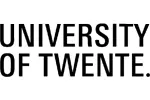We're moving! This site will be relocating to goingto.university in 2026. Please update your bookmarks to the new address.


| The award | How you will study | Study duration | Course start | Domestic course fees | International course fees |
|---|---|---|---|---|---|
| Summer School | Full-time | 9 days | August | - | - |
Smart Cities is a rapidly growing concept in both research and policy practice. It is viewed as a solution for cities to better cope with key societal challenges like energy transition, mobility and social innovation through extensive and effective use of big data and IT.
This, in turn, calls for new modes of ? smart ? governance, with the active involvement of a wide diversity of public, private and citizens' organizations. In this Summer course, Smart Cities is being studied through three themes. First, we focus on Resources and Infrastructure (water, energy and mobility). Second, we focus the Digital City (Big and open data, geo informatics). And third, we analyze Social Innovation (new modes of governance and behavioral change).
What is the city but the people?William ShakespeareEnergy, environment, agriculture and transportation are all aspects of resources and infrastructure when one is considering Smart Cities, but these aspects are only the literal interpretation of the subject. One should also consider legislation, regulations and policies to be part of the municipal infrastructure and can even be seen as resources (grants for example). The latter is treated during the Social Innovation" part although one should not forget that governance is also part of the infrastructure. The course will therefore focus on the next three intertwined themes.
Topics
Resources and InfrastructureIn this theme we consider the more literal meaning of infrastructure and focus mainly on the subjects of water and smart grids. Water and electricity of course being both resources are treated as infrastructure for the smart city. How does the urbanization impact the hydrological cycle? And what is the best water strategy for a smart city?
As the Dutch are known for their expertise in water management examples from Holland are being treated and innovative ways of living with water are discussed. Secondly we are going to look at the rising need for (more) energy and all of the problems that emerge due to this. How should we upgrade our current energy infrastructure to keep up with the rising demand for energy? And what new ways are there to explore in the energy sector?
SESSIONS
Urban metabolism in Resilient CitiesDr. Kris Lulofs & Ewert Aukes MSc.
Cities have grown to previously unimaginable size and continuously do so. As population pressure on urban areas increases so does the pressure on water resources. One way of dealing with the anthropogenic problems associated with urbanisation is reformulating the design principles with which we approach infrastructural and landscape projects. Those principles should focus upon smarter utilisation of water use of (eco-) system knowledge and multifunctional and resilient infrastructure. Thus these design principles contribute to a smarter utilisation of water resources in cities. We will explore urban problem characteristics infrastructure design approaches and management and governance aspects.
Future Energy: Smart GridsDr. Ir Vincent Bakker & Dr. Ir. Albert Molderink
Smart Grids - flexible and intelligent energy networks (e.g. electricity) are becoming much more realistic. One of its characteristics is that production transportation storage and consumption are continually being observed and coordinated. This requires new operating systems both in the electricity system at large and user levels at home. While most renewable production is not flexible in their power supplies at home the use of home automation is widely merging releasing potential for flexibility at the consumer side. This lecture offers a general introduction to future energy systems and the accompanying challenges. Students are also invited to practice with smart grid technology.
Smart Ways to Make Smart Cities SmarterProf. Dr. Andr
Contact University of Twente to find course entry requirements.
Below are some suggested courses at other providers that you may also be interested in:
Cultural Heritage: Sciences, Technologies and Diagnostics BSc
Dipartimento di Scienze della Terra, University of Milan
Find out moreBusiness Administration - International Management Master Degree
Vrije Universiteit Amsterdam
Find out moreProfessional LLM in Canadian Common Law LLM
Osgoode Professional Development, York University
Find out moreConsider a Foundation or Pathway course at University of Twente to prepare for your chosen course:
If you do not meet the entry requirements for this course then consider one of these courses from another institution:
There are 85 other courses listed from University of Twente. A selection of these are displayed below:
Join the StudyLink email list and never miss a chance to turn your study abroad dreams into reality!

Find out more about studying in the Netherlands